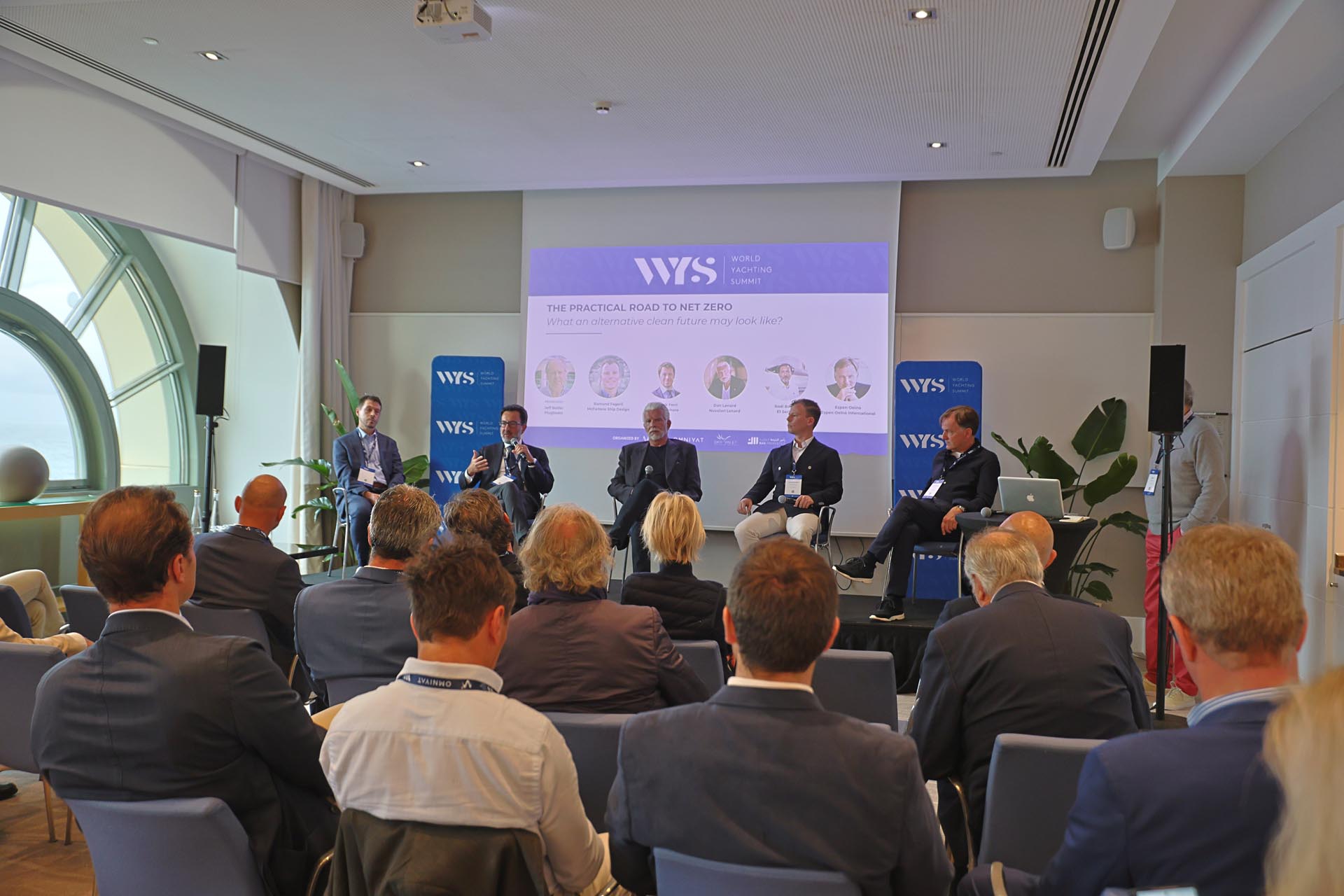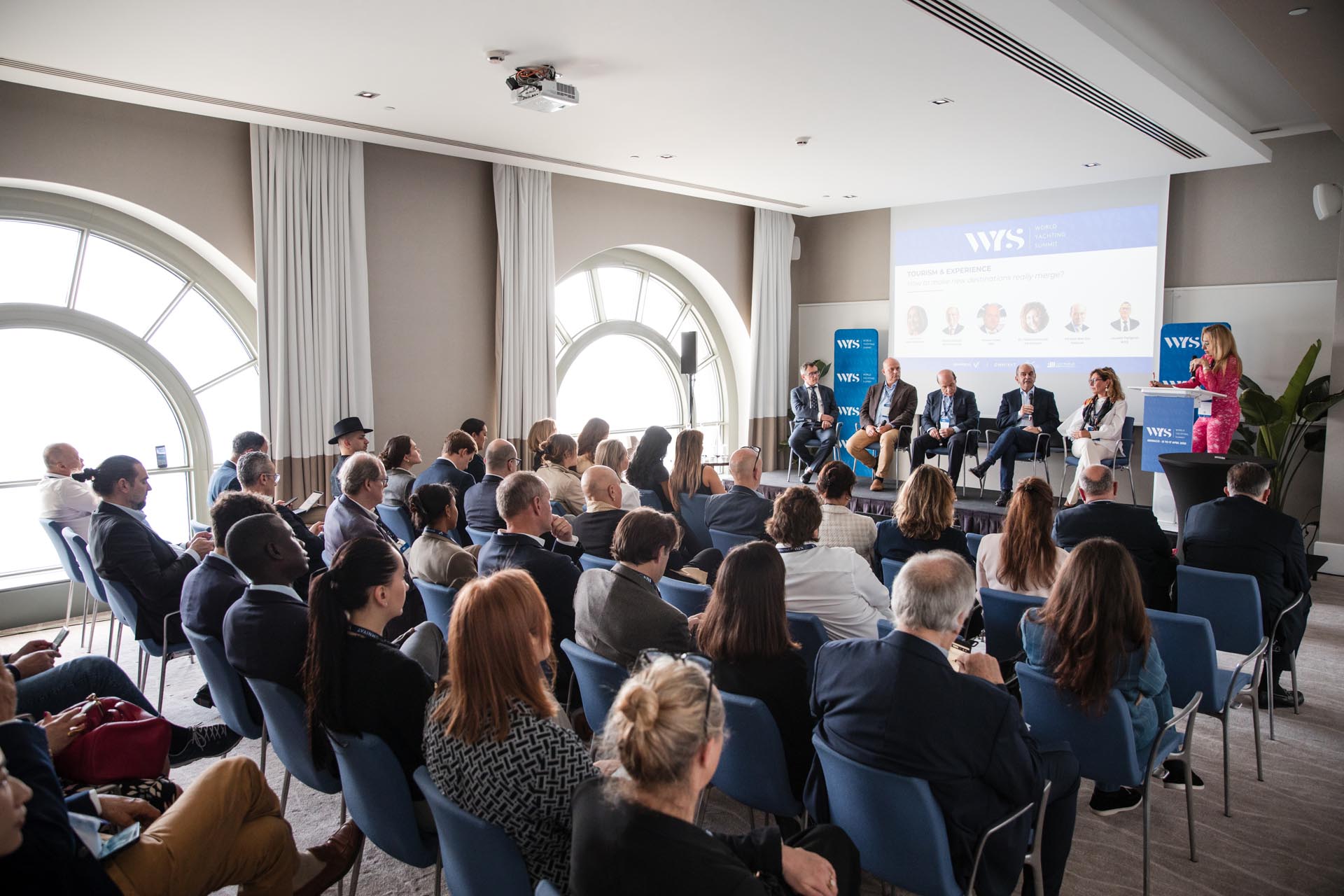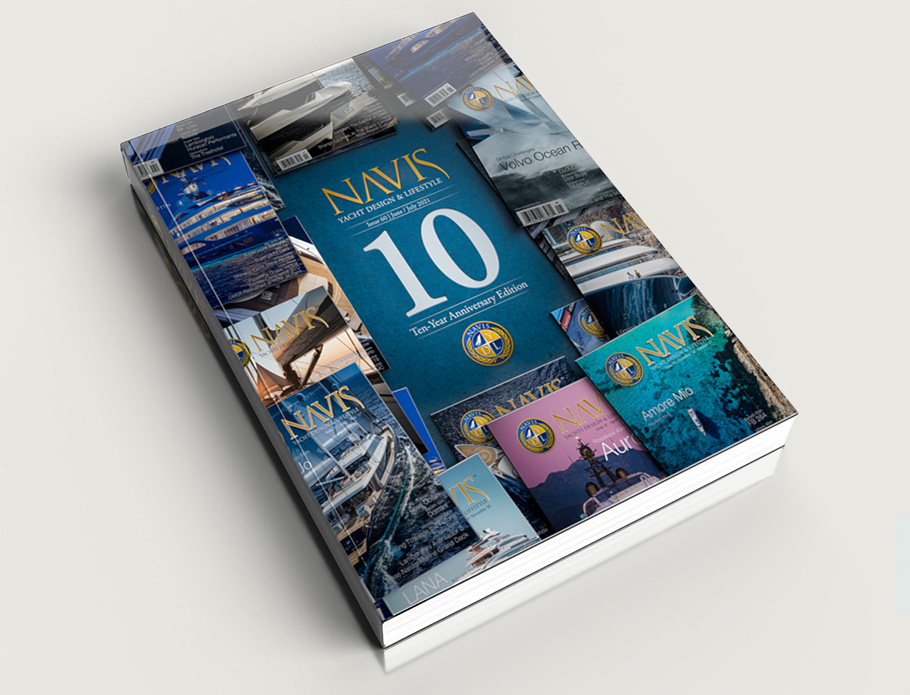Inaugural Monaco gathering fosters critical dialogue on sustainability and modernization.
Monaco played host last week to the inaugural World Yachting Summit, an ambitious new forum designed to address the critical challenges and opportunities shaping the luxury yachting industry. Held from April 15th to 17th, 2025, the event brought together a diverse international cohort of stakeholders, including industry leaders, regulators, government officials, and innovators, for three days of intensive dialogue and debate.
Inspired by the collaborative spirit of global gatherings like COP and the World Economic Forum in Davos, the World Yachting Summit aimed to move beyond traditional industry events by fostering introspection and driving tangible actions for the future of yachting. Initial feedback from attendees and media points to a successful debut that resonated with the industry's call for a more forward-looking approach rooted in innovation, sustainability, and strategic vision.
A Program Focused on Key Industry Pillars
The summit's comprehensive program was structured around two main tracks: "Business Perspectives & Tourism Development" and "Practical Roadmap to Net Zero to Reinvent Yachting." These tracks, featuring a total of 19 panel sessions, delved into a wide array of subjects crucial to the industry's evolution. Complementing the panel discussions were eight "Inspiration Talks" and expert keynotes, offering valuable cross-industry perspectives from sectors such as luxury real estate, wealth management, luxury hospitality, watchmaking, and private aviation.
A notable highlight was the opening inspiration talk by Mr. Jean-Claude Biver, the acclaimed leader known for his transformative tenures at watch brands like Blancpain and Hublot. Mr. Biver emphasized the vital need for the industry to remain connected to the future and actively listen to younger generations. His philosophy, centered on being "First, Unique, Different," underscored the idea that true innovation stems from bold originality and a willingness to learn from mistakes.

Reviewing and Reinventing Yachting: The SMART Approach
In response to increasing public and generational scrutiny regarding the yachting industry's alignment with the UN's 17 Sustainable Development Goals, a significant portion of the summit focused on the need for deep introspection and concrete action. Following a keynote by Giovanna Vitelli, Chairman of Azimut Benetti, stakeholders engaged in robust discussions summarized through a reinterpreted SMART acronym:
- Sustainable: The consensus was clear – sustainability is no longer a choice but an imperative at a critical turning point for humanity. As Olivier Wenden, Vice-President and CEO of the Prince Albert II Foundation, highlighted, the focus is on the future of humanity on the planet. The path to net-zero requires a combination of immediate practical actions and strategic long-term innovation, shifting the industry from reactive compliance to proactive climate leadership through enhanced collaboration. Victorien Erussard, Founder and Captain of Energy Observer, shared the compelling journey of his zero-emission laboratory vessel as a testament to what is possible.
- Modern: Modernization involves embracing new technologies and digitalization, but also demands greater transparency and shared information across the industry, including technical specifications and self-regulation to combat issues like inaccurate listings. The industry can draw lessons from sectors like automotive and aviation in providing clarity to consumers, particularly younger ones, who seek to understand evolving business practices. Furthermore, modernization includes developing new yachting destinations with the necessary infrastructure, standardized regulations, and lifestyle offerings that resonate with younger generations of clients and crew.
- Suggested infographic: Breakdown of the "SMART" acronym and its meaning for the yachting industry.
- Attractive: Attracting younger generations necessitates simplifying processes, effectively communicating the economic value of yachting, and moving the narrative beyond mere ostentation to emphasize purpose, craftsmanship, and the creation of lasting memories. University students attending the summit strongly supported ideas around making boating feel more accessible. The industry must actively listen to the values and expectations of younger demographics, as the clients of tomorrow are influencing the market today, demanding more flexible, meaningful, and sustainable experiences.
- Resourceful: Positive communication is vital to highlight yachting's role as a driver of economic value that benefits broader communities. The industry needs a unified voice for advocacy, potentially mirroring models in private aviation like the EBAA or NBAA, to effectively lobby authorities and showcase its investments in innovation, sustainability, and long-term development. Continuous and high-quality crew training was also identified as essential for ensuring safety, enhancing the onboard experience, and preserving yacht value.
- Transformative: Cultivating yachting culture begins with engaging youth, particularly through sailing, to foster a deep connection with the marine environment from an early age. Introducing new individuals to the industry should emphasize passion, pride, commitment, and excellence, elevating quality standards across building, management, and operations. A human-centric approach is key to blending technical excellence with the emotional and experiential elements that contribute to lifestyle enrichment.
Cautious Optimism and Future Horizons
The summit concluded with a reflective session characterized by "cautious optimism" regarding the industry's future. Discussions acknowledged the industry's historical reliance on global wealth and its sensitivity to macroeconomic fluctuations, citing past slowdowns followed by rebounds. However, the current landscape presents more complex challenges, including geopolitical instability, regulatory pressures, and the evolving profile of the next generation of yacht owners, who are more sustainability-focused, experience-driven, and often less inclined towards the complexities of traditional ownership.
A growing concern highlighted was the shortage of skilled crew and qualified tradespeople, influenced by generational shifts in work attitudes impacting operations and craftsmanship. While global wealth shifts are positioning regions like the Middle East as potential alternative winter destinations, the enduring appeal and cultural richness of the Mediterranean for summer cruising were also underscored.
Ultimately, despite underlying concerns about potential market contraction, the prevailing sentiment remained cautiously optimistic, anchored in the belief that thoughtful adaptation, a renewed focus on training, sustainability, and client-centric simplicity will enable the yachting industry to thrive in a changing world. As Mr. Bernard d'Alessandri, Secretary General of Yacht Club de Monaco, poignantly reminded participants, "when we are at sea, we are guests in a world that is not our own," suggesting a necessary sense of humility for the industry moving forward.
The success of the inaugural World Yachting Summit was made possible through strategic partnerships with M3, a Monaco-based marina consultancy, and OMNIYAT, a leading luxury real estate developer from Dubai. José Marco Casellini, CEO of M3, reflected that the summit leaves a lasting impression, demonstrating significant commercial potential and establishing itself as a driving force for innovation and strategic thinking on a global scale.
Following its successful debut in Monaco, the World Yachting Summit has already announced plans to expand its international reach, with Dubai slated to host the second edition in 2026. This outward-looking approach aims to enrich the summit with diverse perspectives and provide unique opportunities for networking and exploring emerging markets.
Stay tuned to NAVIS for more updates on this evolving story and the future developments discussed at the World Yachting Summit.

.jpg)



